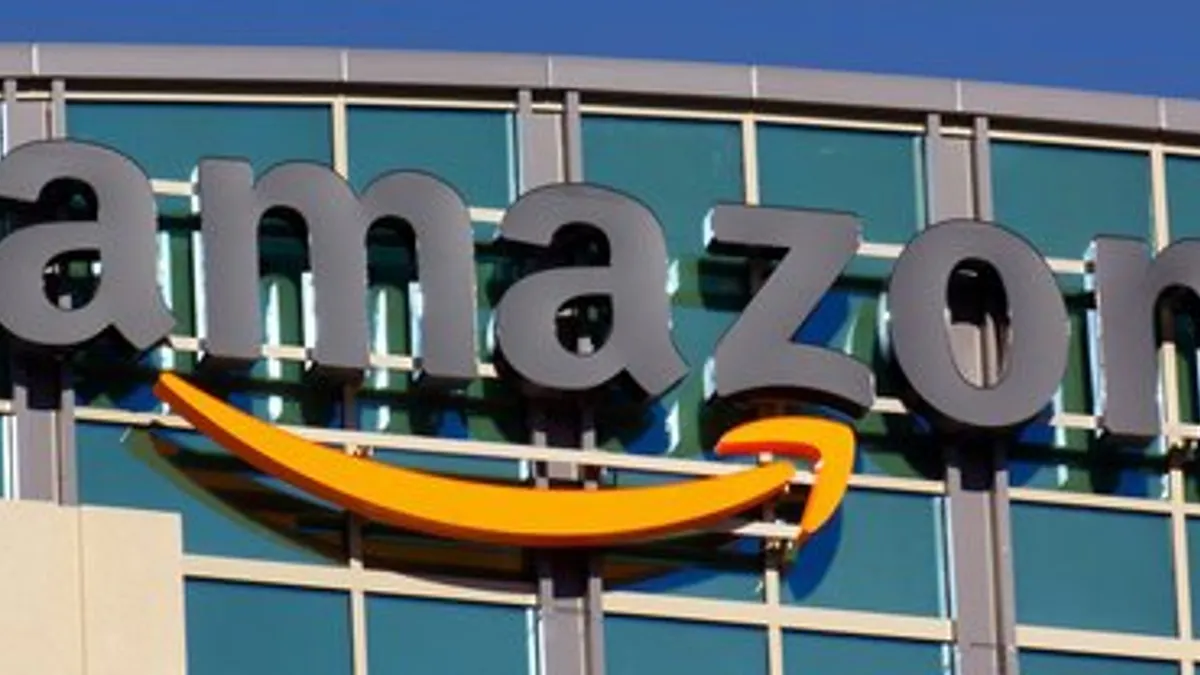Dive Brief:
- In a letter to the Federal Trade Commission, United Food and Commercial Workers International Union president Marc Perrone said Amazon’s acquisition of Whole Foods could ultimately reduce jobs in the industry and limit consumer choice by putting grocers out of business, according to the Washington Post.
- The UFCW also worries that Amazon will have an “unfair advantage with suppliers” that would squeeze small and mid-sized businesses and raise prices for consumers.
- Jon Leibowitz, a former Democratic FTC chairman, told The Post that the agency has to pay attention to concerns raised by outside parties, but an Amazon-Whole Foods deal could spur innovation and lower prices, which would benefit consumers.
Dive Insight:
In his letter to the FTC, UFCW president Marc Perrone argued that Amazon’s acquisition of Whole Foods isn’t like other industry mergers, and shouldn’t be considered as such. The e-commerce giant, he stated, “is more than a digital retail monopoly; rather, it is a retail monopoly that threatens every corner of our nation’s economy.” As Amazon scales up, he writes, it will likely cut jobs through automation, put grocers out of business, squeeze suppliers and ultimately limit consumer choices while also driving up prices.
The UFCW has frequently clashed with both Amazon and Whole Foods, both of which are anti-union. But the organization’s concerns are shared by others, including food companies, legislators and even farmers. Rep. David Cicilline, a Democrat from Rhode Island who sits on the House Judiciary Antitrust Subcommittee, has requested a hearing to discuss the impact the $13.7 billion deal could have on the grocery industry and on prices. Rep. Ro Khanna, a first-term Democrat representing Silicon Valley, told The Atlantic that federal regulators need to evaluate retail mergers differently these days, considering the impact e-commerce can have on wages, employment and industry innovation.
According to The Post, farmers and small businesses are concerned that Amazon will shift Whole Foods’ focus away from small, local suppliers to larger, more cost-effective ones.
Many of these concerns are worth the FTC’s consideration, though at this point they are speculative at best. Amazon, despite its dominance in other retail industries, still has a very small footprint in grocery. According to estimates and analysis from GlobalData Retail, with Whole Foods in Amazon's arsenal, the e-tailer would comprise just 1.4% of grocery sales. Walmart, by comparison, accounts for 14.5% of the grocery market.
Amazon’s offer also seems to confirm the importance of grocery stores and workers amid the growth of e-commerce. Despite the company’s deep pockets and history of innovation, its online grocery service AmazonFresh has struggled to grow in the 10 years since it launched. Brick-and-mortar stores, which are already undergoing significant disruption without Amazon’s influence, are still the preferred destination for grocery shoppers. Many industry experts see a balance of in-store and online sales as the future of supermarket shopping, as opposed to e-commerce alone.
Concerns surrounding job losses are understandable, too, considering Amazon’s push for automation in its operations and the impact e-commerce has already had on grocery jobs. The Post notes that grocers have cut 11,000 jobs over the past year, due in part to the growth of online shopping. But e-commerce is creating jobs in areas like order fulfillment and home delivery. Kroger, for one, says its ClickList service is adding 25 to 35 new jobs per store.
It also appears that automation fears may be overblown in some parts of the industry. Numerous experts, including former Amazon manager Brittain Ladd, say the company’s struggles with its checkout-free Go stores mean stores won’t be doing away with cashiers and front-end registers — at least not anytime soon.
The UFCW’s complaint that Amazon could raise prices and limit competition is also very speculative at this point. The company seems poised to lower prices at Whole Foods, and the highly competitive grocery industry is intensely price focused right now. Strong competitors like Lidl, Aldi and Walmart are going to keep their prices low, spurring other retailers to do the same.
It’s important to note that the UFCW and others aren’t calling for the FTC to block Amazon’s proposed acquisition, but rather to review it differently from other industry mergers. Considering Amazon’s size and the fact that a large internet retailer has never acquired a grocery chain before, it’s a very good suggestion.









